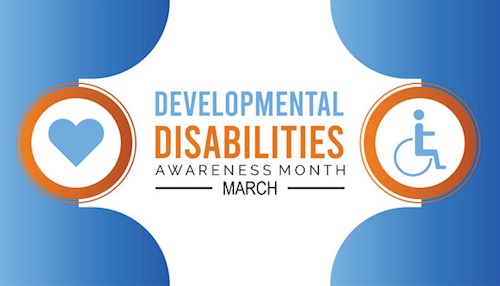How to Support and Advocate for People with Disabilities
The self-esteem and performance of people with disabilities is greatly impacted by peers and co-workers. That’s why we must make it a priority to support people with disabilities. This blog post will discuss some of the high-level ways you can help make a difference.
Educating yourself and others
When it comes to helping those with disabilities, sometimes the best thing you can do to help is to educate yourself and others. Raising awareness is a crucial component in making sure that those with disabilities are seen, heard and understood. When you create awareness, you create empathy.
But how does increased awareness truly support people with disabilities? When you’re educated, you can step in and disrupt the stereotypes that society places on those with disabilities. You can strive to create and foster an environment that is inclusive while also providing equal opportunities for everyone within the disabled community. It allows for space to ask questions and gain further understanding into the lives of those who live with disabilities.
Creating accessibility and being inclusive
Accessibility is another important way to support people with disabilities. Oftentimes, the resources we use aren’t easily accessible to people with disabilities. Whether it’s technology, communication outlets or facilities, these resources aren’t always available.
Also, diversity in the workplace creates a more inclusive and productive environment. This could mean providing screen readers, subtitles and sensory accommodations to people with disabilities. An inclusive environment starts with inclusive people, meaning employees need to be aware and understand the accommodations for employees with disabilities.
Removing discrimination
There is still discrimination towards people with disabilities in social and work settings. It may be that you have good intentions to be inclusive; but turning those intentions into behaviors is the key.
Disabilities impact everyone differently; so, it is important to refrain from putting anyone in a box based on assumptions. Be careful assuming what someone can or cannot do based on their disability.
It’s also important to use proper language when addressing or speaking about those with disabilities. Combatting the stigma surrounding disabilities can be done using language. It comes down to recognizing the value of inclusivity and backing it up with inclusive communication.
Through awareness, accessibility and inclusion, our society can continue to move towards a more helpful and accepting future. You can be part of this change by taking the right steps to truly support people with disabilities.

Developmental Disability Month is here, and it's time to discuss why it is important to advocate for inclusion for individuals with developmental disabilities! Spreading awareness and celebrating is one of the best ways to start!

Want to learn how to properly protect your business information from security risks? This blog contains helpful practices and information that can prepare you and your business for security breaches. By implementing these practices, your business can be better prepared.

Personal finances can be stressful for everyone, but with the right amount of help from Weaver Industries, people with developmental disabilities will feel more supported with gaining financially.